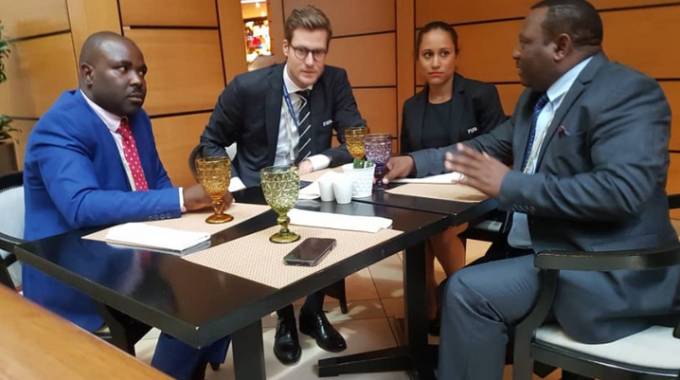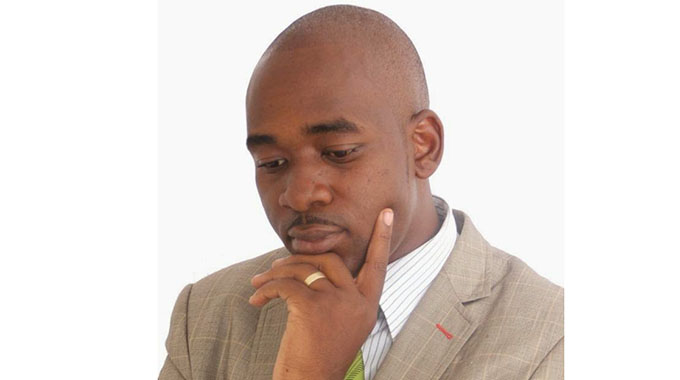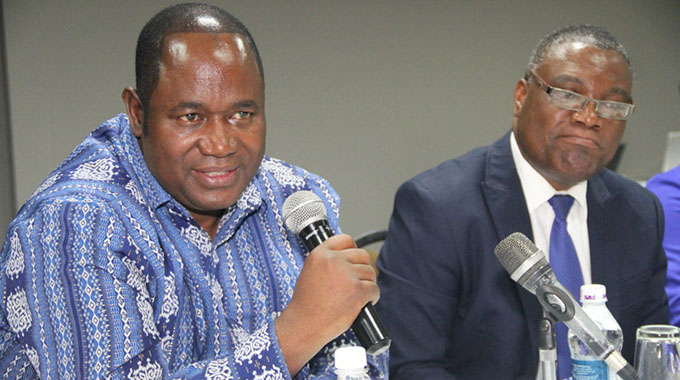OUR WORLD CUP OPPONENTS XI

Robson Sharuko Senior Sports Editor
WHEN Russia and Saudi Arabia get the ball rolling at the 2018 FIFA World Cup in Moscow today, a good chunk of the globe would be watching as the grand sporting show, which rolls into this planet once every four years, announces the start of a month-long marathon rich in entertainment and long on drama.
Four years after Germany edged Brazil at the Maracana to be crowned World Champions, the spectacular show, which even draws quite a big constituency of non-traditional football fans, starts again in Moscow.
By the end of it all, with millions of hearts having been broken, great moments having been immortalised and heroes and villains having emerged, one nation will stand tall and proud.
Some, like Brazil, Germany and Argentina, are regular contenders to the crown and will be among the favourites in Russia while others, like England, are regular under-achievers with the Three Lions having only won one World Cup back in 1966 at a tournament they hosted.
There are five African teams — Nigeria, Tunisia, Egypt, Morocco and Senegal — and they are all set to get a good backing from millions of African football fans who have a tendency to dump the rivalry that usually exists between them, during the qualifiers, to back the continent’s representatives at the World Cup.
The Africans are burdened by a history of under-achievement as none of previous campaigners from the continent have ever passed the quarter-finals despite Brazilian legend, Pele, predicting that a team from Africa would win the World Cup before the turn of the millennium.
Even when one of them was presented with a golden opportunity to score a last-gasp penalty and make the last four, as was the case with Ghana’s Black Stars at the 2010 World Cup in South Africa, someone fluffed that chance with Asamoah Gyan firing his spot kick against the crossbar.
Then, in the ensuing penalty shootout, it was Uruguay who held their nerves better and won to proceed to the semi-finals.
The injury to Egyptian superstar Mohamed Salah, who has exploded in the past year as a genuine football superstar, has dimmed expectations among the Pharaohs, who are returning to the World Cup for the first time in 28 years, of making a big impression.
Salah has resumed training with his teammates but some doubt whether he will be at full throttle to destroy opponents the way he was doing before Sergio Ramos took him down, and in the process, broke Egyptian and Liverpool hearts, during the Champions League final across the border in Kiev, Ukraine.
Sadio Mane is a genuine star of the English Premiership and was a key player in helping Senegal return to the World Cup for only the second time in their history but doubts persist if this generation of players can repeat the heroics of those pioneers of 2002 who reached the quarter-finals.
They could have made the semi-finals, too, but were beaten by a golden goal by Turkey.
Their captain back then, Aliou Cisse, is the one in charge of the Class of 2018 and he has impressed many with the way he has transformed the Lions of Teranga into a competitive and disciplined outfit.
Among those who will be watching the show from the comfort of their homes are the Warriors of Zimbabwe who are still waiting for their first appearance at the World Cup finals after coming very close, yet very far, during the qualifiers for the 1994 tournament held in the United States.
It’s a measure of the importance of the World Cup that the Dream Team’s exploits, in coming within winning just one match to qualify for the World Cup, are still used as a benchmark of success stories in Zimbabwean football even up to this day.
Maybe, it’s not fair to blame the current generation because, after all, they never got any chance to try and fight for a ticket to Russia after the country’s football leaders failed them when they failed to settle a debt owed to Brazilian coach Valinhos, leading to the expulsion of the Warriors from the qualifiers.
The shame of it all is that only $68 000 was needed to dissolve that debt but those who were in charge of the game back then decided to ignore repeated warnings from FIFA, including not even telling the Government of their plight, and when the PSL clubs donated a similar amount to ZIFA for the settlement of the debt, the money was used for other things.
Warriors captain Knowledge Musona can only wonder what his generation could have done, having watched Zambia push Nigeria very close in the qualifiers, had they been handed the chance to play in the qualifiers.
They can also only watch as some of the players they played again, in recent matches, now take their show to the World Cup.
These include Mane, who scored when Senegal beat Zimbabwe 2-0 at the 2017 AFCON finals in Franceville, Gabon, in a group matches.
Cheikh Kouyate, Keita Balde, Ismaila Sarr, Chiekh Ndoye and Moussa Sow are some of the Lions of Teranga who featured for the Senegalese, in that match in Franceville, who are at the World Cup in Russia.
Cisse was the coach of those Senegalese.
Musona scored against Egyptian goalkeeper Sherif Ekremy in a World Cup qualifier five years ago and the goalminder is in Russia with some of his teammates who featured against the Warriors — Salah, scorer of a hattrick at the National Sports Stadium in a 4-2 win for the Pharaohs — Mohamed El Neny and Ahmed Hegazy.
The average age of the Pharaohs in Russia is 29 and their combined transfer market value is $197.23 million and 15 of their players ply their trade outside their country.
Only last year, one of those players, Shikabala, was at the National Sports Stadium and featured for Zamalek in a 1-3 loss to CAPS United in a Champions League match.
Today, he is in Russia for the World Cup with the Pharaohs.
Just in case you are still wondering about the Warriors who played against the Senegalese in Gabon last year, here are them — Tatenda Mukuruva, Hardlife Zvirekwi, Elisha Muroiwa, Costa Nhamoinesu, Onismor Bhasera, Marvelous Nakamba, Matthew Rusike, Khama Billiat, Kuda Mahachi, Nyasha Mushekwi, Tendai Ndoro, Cuthbert Malajila and Evans Rusike.
Some, like Nakamba, have thrived, others like Muroiwa have lost it completely, to the extent of being rejected even by Harare City, and have disappeared from the scene while others, like Ndoro, spent the weekend in a South African jail after a case of domestic violence in South Africa.
Okay, let’s enjoy the World Cup while it lasts and, who knows, maybe our boys could have been there, too.











Comments